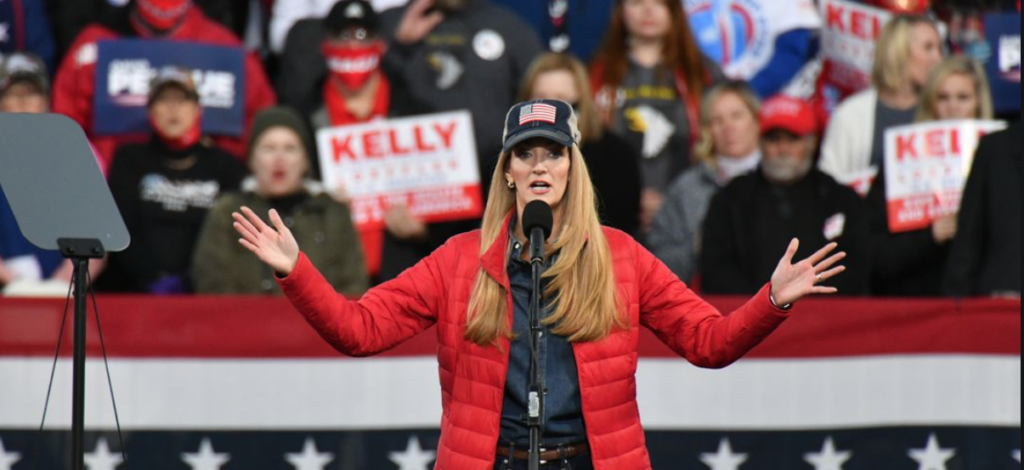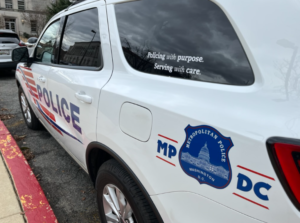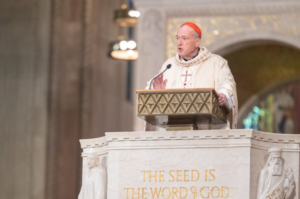Georgia Is Still On Her Mind: Former Republican Senator Launches Voter Group to Counter Recent Gains By Stacey Abrams & Democrats

Image Courtesy of Atlanta Journal-Constitution
By Justin Lamoureux
Less than two months have passed since Kelly Loeffler was denied a full term in the U.S. Senate, she is already hard at work planning her next move. On February 22, the Georgia Republican revealed plans to launch a nonprofit organization to connect with Republican voters in her state in an attempt to counter Stacey Abrams’ grassroots mobilization efforts.
“Greater Georgia Action” is designed to function as a grassroots organization, though Loeffler intends to establish it using her own personal funds. Its fundamental purpose is to register hundreds of thousands of new voters for the GOP. In a significant departure from traditional strategy, Loeffler plans to have a small team of staff focusing on voter registration all year, instead of in the weeks and months leading up to Election Day. Strategists on both sides of the aisle believe that such “relentless consistency” has proven critical to Democrats’ recent success in Georgia.
Despite her party’s recent losses, Loeffler sees “enormous potential” for registering new Republican voters in Georgia. Citing the estimated 500,000 conservative voters who did not vote in the January senate runoffs after previously casting ballots in November, Loeffler believes that restoring voter confidence in the electoral process is key to the GOP’s future success.
Outlining the “Greater Georgia” strategy, Loeffler identified three primary objectives. First and foremost, she hopes the organization will register more voters; the former senator estimates that Georgia has an upwards of 2 million eligible voters who are not registered. Second, Loeffler aims to make inroads with traditionally Democratic voting blocs; these include the Black, Latino and Asian communities. In doing so, she hopes to build a network to promote “big tent” policy proposals, and educate a wider range of demographics on Republicans’ “pro-growth” platform. Finally – and perhaps, most importantly – Loeffler wants to restore what she perceives as voters’ loss of faith in the election system. This can be accomplished, she believes, through increased electoral safeguards (specifically, more stringent voter ID laws and requirements for voting absentee).
“Greater Georgia Action” is undoubtedly an ambitious organization, but it only constitutes part of Loeffler’s long-term political strategy. She has also founded a PAC known as “Stop Stacey,” which is dedicated to building a fundraising infrastructure that effectively solicits for Republican candidates and, more specifically, to buttress incumbent Georgia Governor Brian Kemp’s expected re-election bid. Republicans hope to use funds acquired through “Stop Stacey” to help mobilize their own supporters and run advertisements against Abrams (who is widely expected to seek a rematch with Kemp in 2022).
Loeffler has confirmed that she is considering another run for office in the future, but the most evident goal of her enhanced organization is to counter Abrams’ growing influence over Georgia politics. In contrast with Loeffler, the former gubernatorial candidate has experienced noteworthy success in galvanizing the state’s electorate through her own voter registration organization; since 2018, over the last two years, “Fair Fight” has registered over 800,000 new Democratic voters across Georgia. Leading up to the November election, “Fair Fight” also texted 2 million voters – over 80% of the party’s ultimate vote share – with instructions for obtaining absentee ballots. Many Democrats have praised Abrams’ efforts, considering her instrumental to the party’s statewide victories.
It remains to be seen whether Loeffler and “Greater Georgia Action” will experience the same degree of success that Abrams and “Fair Fight” have enjoyed. Nevertheless, with heightened investment from both parties, increased attention from national donors, and a newfound location in the center of the political universe, it remains all but certain that Georgia will remain a prime target for Democrats and Republicans alike for elections to come.







